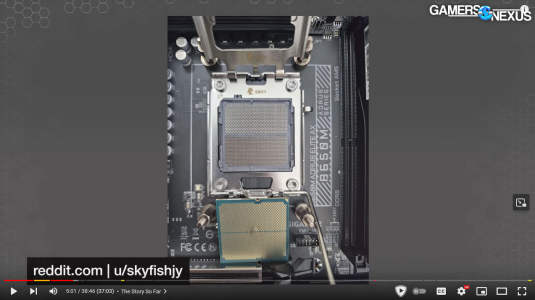ASUS' actions relating to the Exploding Ryzen CPU debacle are disgraceful and abrasive to the trust that the brand has earned. ASUS has demonstrated clearly it wishes to not only avoid supporting users, but actively engineers ways to abandon them. ASUS' updates haven't even fixed the problems, yet they posture as if they have while simultaneously suggesting that users 'just run defaults' on their $700 motherboards, as if that makes any sense whatsoever. So, to accommodate ASUS' request, we ran defaults and re-benchmarked the Ryzen 7000 series. It sucks. Big surprise. They also don't support their own BIOSes for the ASUS ROG boards.
I would also hold AMD partially responsible for this debacle. They have enough power, and certainly obligation, to influence their partners' behavior and practices when it directly compromises AMD's reputation and business. Intel is, for better or worse, much better in that regard. Asus and its customer relation is standard MO for them.
I would also hold AMD partially responsible for this debacle. They have enough power, and certainly obligation, to influence their partners' behavior and practices when it directly compromises AMD's reputation and business. Intel is, for better or worse, much better in that regard. Asus and its customer relation is standard MO for them.
![[H]ard|Forum](/styles/hardforum/xenforo/logo_dark.png)

